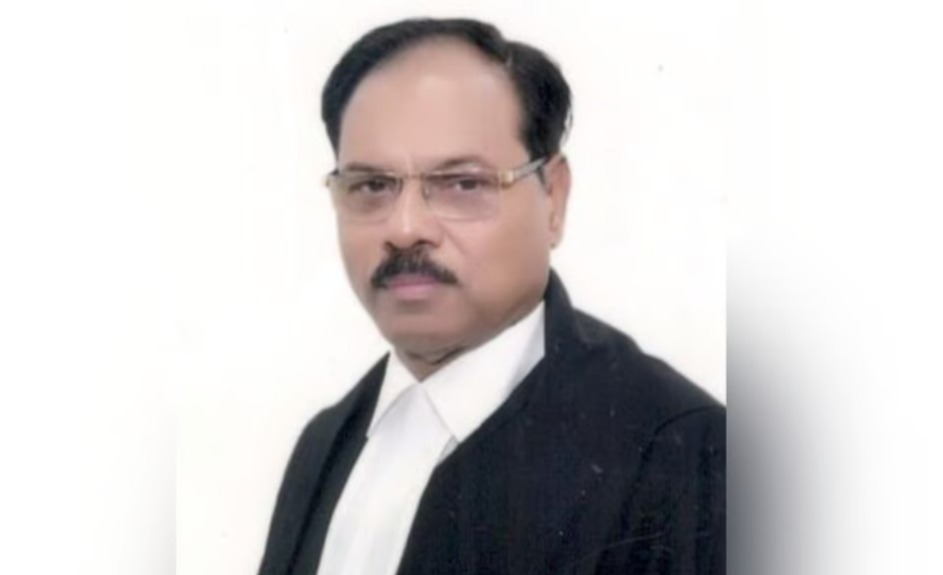New Delhi: Thirteen senior advocates of the Supreme Court have written to Chief Justice of India (CJI) Sanjiv Khanna, urging him to take suo motu cognizance of a speech delivered by Justice Shekhar Kumar Yadav of the Allahabad High Court. The letter demands the CBI lodge an FIR against Justice Yadav, citing his remarks as hate speech that violates constitutional values and judicial impartiality.
The advocates highlighted Justice Yadav’s speech at an event organised by the Vishva Hindu Parishad's legal cell on December 8, 2024, within the Allahabad High Court library premises. They alleged that his comments, including divisive rhetoric and derogatory remarks towards Muslims, contradict the oath of office taken by a judge.
The letter noted Justice Yadav’s statements referring to “hamari Gita” (our Gita) and “aapki Koran” (your Koran), alongside other remarks that allegedly painted one religious community in a negative light. He reportedly criticised Muslim practices such as polygamy and triple talaq, characterising the community as lacking generosity and tolerance.
The advocates emphasised that the speech promoted majoritarian views, undermined the constitutional principles of secularism, and posed a threat to India’s unity and integrity. Justice Yadav also invoked divisive imagery, referencing the Ram Mandir issue and unfounded fears of India becoming “Bangladesh” or “Taliban.”
The letter further pointed out that Justice Yadav’s appointment to the Allahabad High Court was opposed by former CJI Dr D.Y. Chandrachud, citing inadequate work experience and his association with the Rashtriya Swayamsevak Sangh (RSS) and a BJP leader.
Referring to the Supreme Court’s ruling in K. Veeraswami v. Union of India (1991), the advocates argued that a criminal case against a sitting judge requires consultation with the CJI. They called for immediate action, stating Justice Yadav’s remarks violated Articles 14, 21, 25, and 26 of the Constitution.
The letter also highlighted the Supreme Court’s Amish Devgan v. Union of India (2021) judgment, describing Justice Yadav’s speech as hate speech promoting enmity between religious groups. It urged the judiciary to uphold its impartiality and ensure accountability for actions undermining public confidence in the justice system.
Justice Yadav reportedly stands by his comments, as per media reports. The advocates concluded by requesting the CJI to ensure that appropriate legal and constitutional measures are taken against the judge.
Let the Truth be known. If you read VB and like VB, please be a VB Supporter and Help us deliver the Truth to one and all.
Mumbai: Ahead of the IPL 2025 clash between Mumbai Indians and Royal Challengers Bengaluru, RCB star batter Virat Kohli opened up about his long-standing bond with Rohit Sharma. Despite past media rumours of a rift between the two, Kohli reaffirmed the mutual respect and strong professional relationship they share.
In a conversation on the RCB channel, Kohli said, “Playing alongside someone for such a long time naturally leads to a strong bond, especially when you share so much of your understanding of the game. In the early years, we were constantly learning from each other and growing in our careers simultaneously.”
He further added that over the years, they had built trust and often found themselves on the same page while making decisions in leadership roles. “Reflecting on our long careers, we are both grateful and proud of the journey we've shared. The consistency and memories we’ve built together have been incredibly fulfilling,” he said.
Kohli and Rohit have played crucial roles in Indian cricket’s success over the past 15 years. While rumours of discord often emerged, both have consistently denied them and maintained professionalism on and off the field.
Meanwhile, Mumbai Indians will aim to register their second win of the season as they host RCB at the Wankhede Stadium. Led by Hardik Pandya, MI have so far won just one out of their four matches, while RCB have two victories in three games.
𝐓𝐡𝐞 𝐑𝐎-𝐊𝐎 𝐛𝐨𝐧𝐝! 🫂
— Royal Challengers Bengaluru (@RCBTweets) April 6, 2025
Virat Kohli talks about his equation with Rohit Sharma, and how they’ve bonded over the years and created some wonderful memories! ✨
We’re just a day away from seeing them go up against each other, and we wish them well! 😌👊#PlayBold #ನಮ್ಮRCB… pic.twitter.com/I6GHFHxgEx





